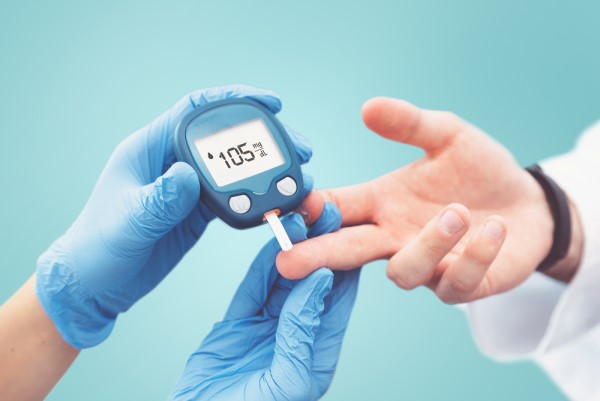
Understanding Diabetes: A Chronic Condition with Many Faces
Diabetes is a chronic condition that affects how your body regulates blood sugar. Blood sugar, also known as glucose, is a vital energy source for your cells. Normally, your pancreas produces a hormone called insulin, which helps your cells absorb glucose from the bloodstream. In diabetes, this process is disrupted, leading to high blood sugar levels.
There are several types of diabetes, each with its own cause:
- Type 1 Diabetes: This autoimmune disease occurs when the body’s immune system attacks and destroys the insulin-producing beta cells in the pancreas. People with type 1 diabetes require lifelong insulin therapy to manage their blood sugar levels.
- Type 2 Diabetes: This is the most common form of diabetes, accounting for around 90% of cases. In type 2 diabetes, the body either doesn’t produce enough insulin or becomes resistant to its effects. Lifestyle factors like obesity, physical inactivity, and unhealthy diet play a significant role in developing type 2 diabetes. However, genetics also contribute.
- Gestational Diabetes: This type of diabetes develops during pregnancy in some women. While it usually resolves after childbirth, it can increase the risk of developing type 2 diabetes later in life for both mother and baby.
Symptoms and Complications of Diabetes
The symptoms of diabetes can vary depending on the type and severity of the condition. Some common signs include:
- Frequent urination
- Increased thirst
- Excessive hunger
- Unexplained weight loss
- Fatigue
- Blurred vision
- Slow-healing wounds
- Frequent infections
If left untreated, chronic high blood sugar can lead to serious complications affecting various organs and systems in the body. These include:
- Heart disease and stroke
- Nerve damage (neuropathy)
- Kidney disease (nephropathy)
- Eye problems (retinopathy)
- Foot problems, which can lead to amputation
Diagnosis and Management of Diabetes
Diagnosing diabetes typically involves a blood test to measure fasting blood sugar levels or a glucose tolerance test. Early diagnosis and proper management are crucial to prevent complications. Treatment plans for diabetes can vary depending on the type and severity. They may include:
- Diet: Following a healthy diet rich in fruits, vegetables, whole grains, and lean protein is essential for managing blood sugar levels.
- Exercise: Regular physical activity helps your body use insulin more effectively and lowers blood sugar.
- Medication: People with type 2 diabetes may require oral medications or injectable medications to help their body produce or use insulin more effectively.
- Insulin Therapy: For people with type 1 diabetes and some with advanced type 2 diabetes, insulin injections are necessary to control blood sugar levels.
- Blood Sugar Monitoring: Regularly monitoring blood sugar levels at home allows for adjustments in diet, medication, or insulin dosage.
Living with Diabetes
Living with diabetes requires ongoing management, but it doesn’t have to limit your life. By following a healthy lifestyle, taking prescribed medications, and monitoring your blood sugar, you can significantly reduce your risk of complications and live a long and fulfilling life. Here are some additional tips for managing diabetes:
- Learn about diabetes: Educate yourself about the condition, its management, and potential complications. This empowers you to make informed decisions about your health.
- Join a support group: Connecting with others who understand the challenges of living with diabetes can be a source of encouragement and valuable information.
- Manage stress: Chronic stress can elevate blood sugar levels. Practice relaxation techniques like yoga or meditation.
- Don’t neglect dental care: People with diabetes are more susceptible to dental problems. Regular dental checkups and good oral hygiene are essential.
- Get regular checkups: Schedule regular visits with your doctor to monitor your blood sugar, blood pressure, and cholesterol levels. They can also screen for potential complications.
Research and Advancements in Diabetes Care
Significant research is ongoing to improve diabetes treatment and prevention strategies. Some promising areas of advancement include:
- Artificial Pancreas Systems: These closed-loop systems continuously monitor blood sugar and automatically adjust insulin delivery through pumps, mimicking the natural function of a healthy pancreas.
- Stem Cell Therapy: Researchers are exploring the potential of stem cell therapy to regenerate insulin-producing beta cells in the pancreas.
- Gene Therapy: This approach aims to modify genes responsible for insulin production or insulin resistance to improve the body’s ability to regulate blood sugar.
Conclusion
Diabetes is a chronic condition affecting millions worldwide. However, with proper management and lifestyle changes, you can live a healthy and active life. By staying informed about the latest advancements in diabetes research, you can be hopeful about the future of treatment and potential cures. Remember, you are not alone in managing this condition. Talk to your doctor, a diabetes educator, and connect with support groups to empower yourself and live
